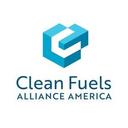United on July 31 became airline to purchase SAF for use at O'Hare International Airport (ORD) and Gov. JB Pritzker joined the airline's leadership at ORD to highlight the role that Illinois' SAF tax credits played in bringing SAF to the facility.
JetBlue and World Fuel Services, a World Kinect company, on July 31 announced a new commercial agreement to bring the first regular supply of blended SAF, provided by Valero Marketing and Supply Co. to JFK Airport as early as Q4 2024.
Airbus, the Air France-KLM Group, Associated Energy Group, LLC, BNP Paribas, Burnham Sterling, Mitsubishi HC Capital Inc. and Qantas Airways Limited co-invested in a SAF financing fund to accelerate the production of SAF.
CVR Energy Inc. on July 29 reported that the renewable diesel unit at its Wynnewood refinery in Oklahoma processed nearly 12 million gallons of feedstock during Q2. The company continues to consider a pivot to SAF production.
International Airlines Group has reached an agreement with the multi-energy company Repsol for the purchase and supply during the next six months of more than 28,000 metric tons of sustainable aviation fuel (SAF).
Neste Corp. on July 25 released second quarter results, reporting that operational performance at the company’s facilities was solid during the three-month period despite a very challenging market environment for renewables.
Valero Energy Corp. released Q2 financial results on July 25, reporting strong performance for both its ethanol and renewable diesel segments. The company’s SAF project in Texas remains on track to begin operations later this year.
Neste has commissioned terminal capacity at ONEOK’s terminal in Houston for blending and storing its SAF. Neste now has approximately 33.6 million gallons of SAF storage capacity at the facility with direct connection to pipeline infrastructure.
Boeing has released guidance to defense customers that company-built military aircraft can operate on sustainable aviation fuel (SAF) at currently approved limits of up to 50% blend with conventional fuel.
The U.S. EPA on July 18 announced it has reached a settlement with Lupton Petroleum Products Inc., and its affiliate Brad Hall Associates Inc., for violations of the Clean Air Act’s conventional and renewable fuel requirements.
The U.S. Department of Transportation’s Federal Aviation Administration has launched $1 billion fiscal year (FY) 2025 funding opportunity that could help U.S. airports develop infrastructure to increase access to sustainable aviation fuel (SAF).
Evonik has announced the expansion of its sodium methylate production capacity at its Rosario plant, located in the Sante Fé Province in Argentina. With this expansion, the company strengthens its position as a leader in the biofuels industry.
The National Renewable Energy Laboratory has released the seventh in a series of reports documenting the quality of biodiesel from U.S.- and Canadian-based producers that participate in the BQ-9000 program.
Cargill has surpassed the 50% completion milestone in the construction of its new canola facility located in West Regina, Saskatchewan. The new facility will produce canola oil for food and biofuels markets and canola meal for animal feed.
DOE issues notice of intent to fund industrial partnerships across the bioenergy and bioproducts value chain
The DOE has announced its intent to fund partnerships between industry stakeholders and Feedstock-Conversion Interface Consortium researchers. The partnerships will address the cost and risk impacts of feedstock and process variability.
Nearly 2.04 billion RINs were generated under the RFS in June, down from 2.06 billion generated during the same month of last year. Total RIN generation for the first half of 2024 reached 12.07 billion.
The U.S. EPA on July 18 released updated small refinery exemption (SRE) data, reporting that seven new SRE petitions have been filed under the RFS during the past month. A total of 46 SRE petitions are now pending.
The Missouri Agricultural and Small Business Development Authority on July 16 announced applications are available for the Biofuel Infrastructure Incentive Program (BIIP). Applications are due Oct. 15.
On July 17, Clean Fuels Alliance America delivered a formal notice of intent to sue the U.S. EPA for its failure to issue timely 2026 Renewable Fuel Standards. EPA is required to finalize volumes 14 months before the start of the compliance year.
Production capacity of sustainable aviation fuel (SAF) in the U.S. could increase from around 2,000 barrels per day (b/d) to nearly 30,000 b/d in 2024 if all announced capacity additions come on line.
American Airlines consumed 2.7 million gallons of SAF in 2023, according to its 2023 Sustainability Report. While that volume of SAF use was up 4% when compared to 2022, it accounted for less than 1% of total fuel use during the year.
Renewable diesel margins could experience a modest increase this fall, according to CoBank’s latest Quarterly Research Report. If realized, that boost to margins could mitigate softening demand for soybean oil in the biofuel market.
The U.S. DOE Bioenergy Technologies Office has released a RFI on renewable propane production technologies and uses to better understand the supply chains for production and uses of renewable propane and other renewable gaseous intermediates.
IATA: South Africa has vast potential for SAF production
The International Air Transport Association has called on South Africa to mobilize its experience, resources, and infrastructure to accelerate the development of sustainable aviation fuel (SAF) production.
Chevron Renewable Energy Group is commissioning an enhancement at its Mason City, Iowa, biodiesel production facility that will include the installation of a solar array. Work on the project is expected to be complete by the end of the year.
Neste will supply sustainable aviation fuel (SAF) to Hotelplan Group, a globally active Swiss travel group in the leisure and business travel sector, to enable Hotelplan to expand the use of SAF across the whole group.
The U.S. exported 71,012 metric tons of biodiesel and biodiesel blends of B30 and greater in May, according to date released by the USDA on July 3. Biodiesel imports reached 127,104.7 metric tons for the month.
Shell plc on July 2 announced it will temporarily pause on-site construction work on a biorefinery in the Netherlands “to address project delivery and ensure future competitiveness given current market conditions.”
Air New Zealand in late June received a shipment of sustainable aviation fuel (SAF) into Wellington, its first delivery to the nation's capital city and another small step towards its target of net zero carbon emissions by 2050.
Neste and OK Slurink, subsidiary of Catom B.V. and a specialist in bunkering services, have joined forces with Scylla, a provider of river cruises, to supply Neste MY Renewable Diesel™ in the Netherlands for Scylla’s river cruise operations.
Advertisement






























